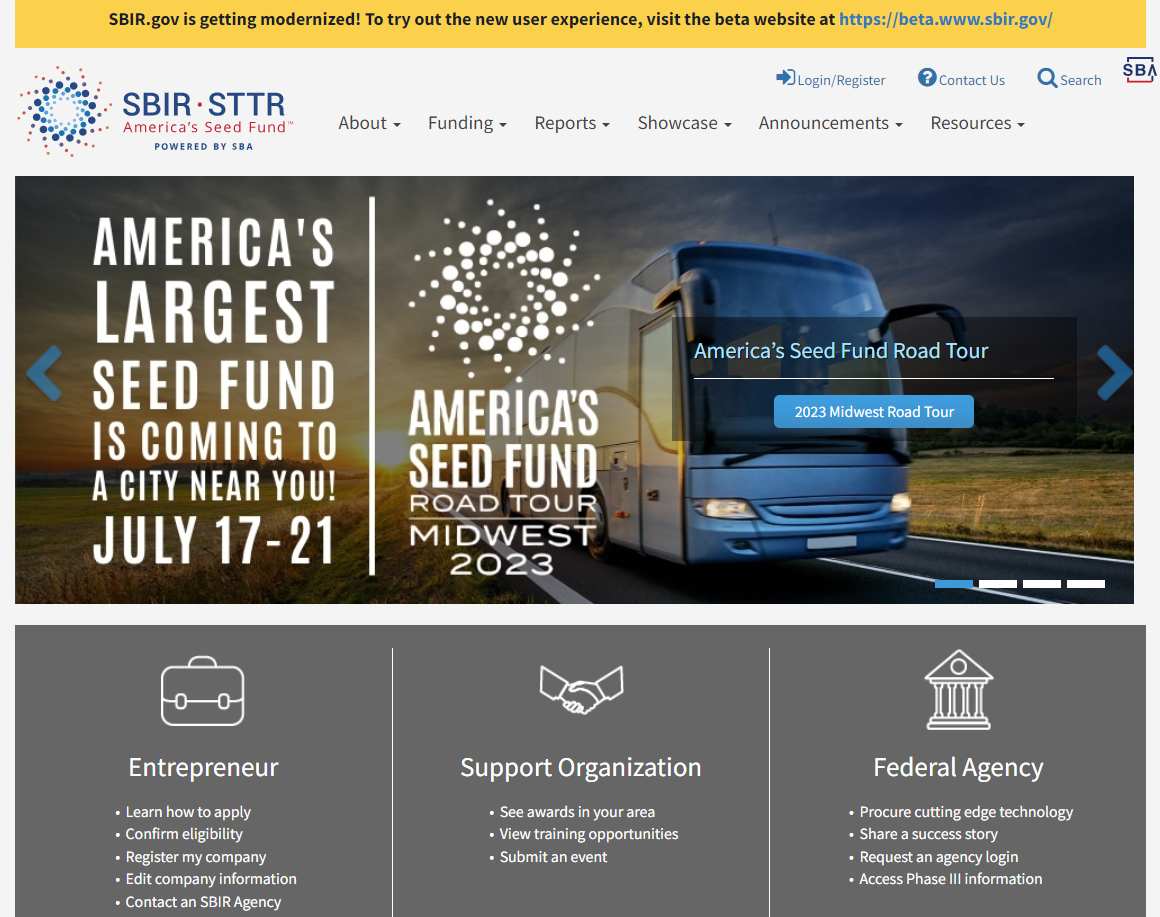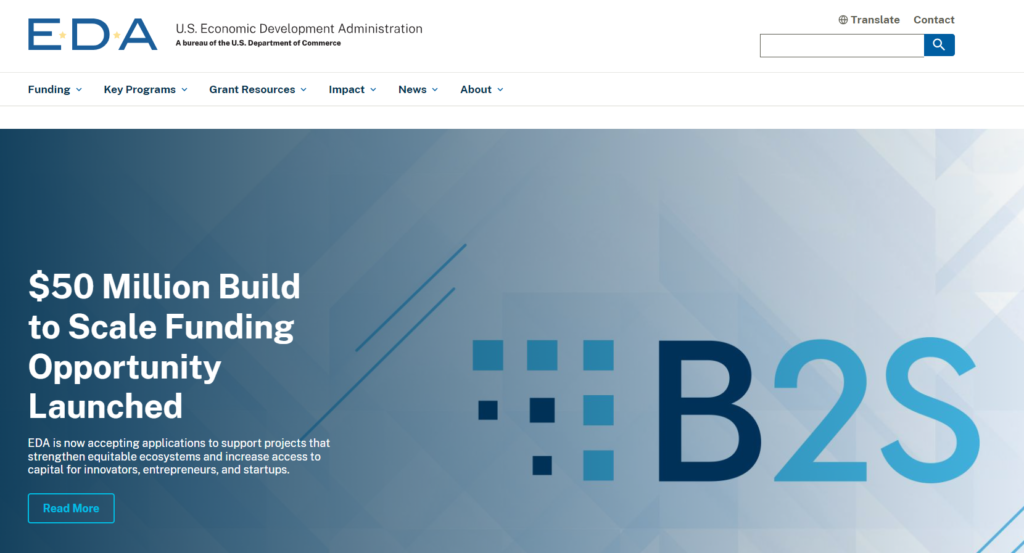
In Illinois, also known as, The Prairie State, starting and growing a small business can be challenging, particularly when securing the necessary funding. One often overlooked source of funding for small businesses comes in the form of grants. In Illinois, various grants are available to small business owners, offering a valuable source of funding to help you achieve your business goals.
This comprehensive guide will explore the Small Business Grants in Illinois, how to find them, and tips for successfully applying. And, if you are planning to form a Limited Liability Company in Illinois and want to have small business grants, this article is right for you. Read the guide to fully understand small business grants in Illinois.
Webinarcare Editorial Team had thorough research and market study regarding the state-funded small business grants in Illinois. It would be best to cross-check all the factors before choosing the right one for your Illinois business.
On this page, you’ll learn about the following:
What is a Small Business Grant?
A business grant is a sum awarded to a small business that does not need to be repaid. Grants are typically given by governments, nonprofit organizations, and private companies to help support the growth and development of small businesses. Grants can be used for various purposes, such as starting a new business, expanding an existing one, purchasing equipment, or funding research and development.
If you are planning to start a business in Illinois, you should consider having small business grants for your business’s funding.
Small Business Grants in Illinois
Various types of small business grants are available in Illinois, depending on the source of funding and the specific needs of your business. Here are three main categories of grants that you can explore:
Illinois Funded Small Business Grants
Illinois funded small business grants offer several programs to support small businesses. These grants may be specific to certain industries, regions, or business stages. Examples of state-funded small business grants in Illinois include:
1. Illinois Department of Commerce and Economic Opportunity (DCEO) Grants
The DCEO offers various grant programs and resources to support small businesses in Illinois. One such program is the Advantage Illinois program, which provides loans and investments to small businesses to promote job creation and economic growth. Another program is the Community Development Block Grant (CDBG), which offers funding for projects related to infrastructure, job training, and business development in eligible areas.
2. Illinois Small Business Development Center (SBDC) Grants and Resources
The Illinois SBDC provides resources and support for small businesses in the state, including grant opportunities. While the Illinois SBDC does not directly offer grants, they help small businesses identify and apply for federal, state, and local funding sources, including grants, loans, and other financial assistance programs.
3. Chicago Small Business Improvement Fund (SBIF) Grant
The SBIF Grant is a local grant program offered by the City of Chicago that provides financial assistance to small businesses for building improvement projects. The program offers reimbursement grants of up to $150,000 for commercial properties or up to $250,000 for industrial properties. Eligible expenses include facade improvements, building repairs, and interior renovations.
Aside from Illinois funded small business grants, there are federal small business grants available. These grants can not only provide a much-needed funding boost, but they can also offer valuable networking and mentorship opportunities for entrepreneurs starting a business in Illinois.
– WEBINARCARE EDITORIAL TEAM
Federal Small Business Grants Available in Illinois
Federal small business grants in Illinois may also offer grants to businesses, particularly those that contribute to the community’s economic development or create jobs. Examples of federal small business grants in Illinois include:
Small Business Innovation Research (SBIR) Program
The Small Business Innovation Research (SBIR) program is a highly competitive federal initiative that encourages domestic small businesses to engage in research and development (R&D) with the potential for commercialization. The SBIR program is coordinated by the Small Business Administration (SBA). It operates across 11 participating federal agencies, including the Department of Defense, the National Institutes of Health, the Department of Energy, and the National Science Foundation.

To apply for the SBIR program, small businesses must submit proposals in response to agency-specific solicitations, which outline each participating federal agency’s research topics and priorities. The application process is highly competitive, emphasizing the proposed technology’s technical innovation, feasibility, and commercial potential.
Small Business Technology Transfer (STTR) program
The Small Business Technology Transfer (STTR) program is a federal initiative designed to encourage collaboration between small businesses and research institutions in the United States. The program aims to promote the commercialization of innovative technologies from research and development (R&D) efforts and foster entrepreneurship and economic growth.
Administered by the Small Business Administration (SBA), the STTR program involves five participating federal agencies, including the Department of Defense, the National Institutes of Health, the Department of Energy, the National Aeronautics and Space Administration, and the National Science Foundation.
To apply for the STTR program, small businesses must submit proposals in response to agency-specific solicitations, which outline each participating federal agency’s research topics and priorities. The application process is highly competitive, with a strong emphasis on the proposed technology’s technical innovation, feasibility, commercial potential, and the quality of the collaboration between the small business and research institution.
Other Federal Grant Programs
In addition to the Small Business Innovation Research (SBIR) and Small Business Technology Transfer (STTR) programs, there are several other federal grant programs available to support small businesses and entrepreneurs in various sectors and stages of development in Illinois. Some of these programs include:
Economic Development Administration (EDA) Grants: The EDA, under the U.S. Department of Commerce, offers grants to support economic development, job creation, and business growth in economically distressed communities. These grants are typically awarded to local governments, nonprofits, and economic development organizations, supporting small businesses through technical assistance, infrastructure development, and other services.

Rural Business Development Grants (RBDG): Administered by the U.S. Department of Agriculture, the RBDG program offers grants to support small businesses in rural areas. These grants are intended to promote job creation, business expansion, and economic development in rural communities. Eligible applicants include towns, communities, state agencies, nonprofits, and higher education institutions.
Local and Regional Small Business Grants in Illinois
In Illinois, various local and regional small business grants are available to support and encourage the growth and development of small businesses. These grants often target specific industries or demographic groups and can provide financial assistance, training, and resources to help businesses succeed.
To find specific grant opportunities in Illinois, it’s essential to check with local and regional economic development agencies, chambers of commerce, and other business support organizations. They can provide information on available grants, eligibility requirements, and application processes.
Benefits of Small Business Grants
There are several benefits to obtaining a small business grant for your Illinois business, including:
- No Repayment Necessary: Unlike loans, grants do not require repayment, making them an attractive option for small businesses needing financial assistance.
- Retain Equity: Grants allow owners to fully own their businesses without giving up a portion of their equity in exchange for funding.
- Credibility: Receiving a grant can enhance a business’s credibility, making it more attractive to potential investors, partners, and customers.
- Networking Opportunities: Many grant programs offer networking opportunities and support services, helping small businesses connect with mentors, industry experts, and other business owners.
Tips for Applying for Small Business Grants in Illinois
Applying for small business grants in Illinois can be competitive. Here are some tips to help you increase your chances of success:
- Research Available Grants: Research the various small business grants available in Illinois. Look for grants designed for your industry, target market, or demographics. Check with local and regional economic development agencies, chambers of commerce, and other business support organizations for information on available grants.
- Read the Eligibility Criteria Carefully: Ensure your business meets the eligibility criteria before applying for a grant. Some grants may have specific requirements based on location, industry, business size, or the demographics of the business owner.
- Create a Solid Business Plan: A well-written business plan is essential when applying for grants. It demonstrates your understanding of your business, target market, and growth strategy. Be sure to include financial projections and a clear explanation of how the grant funds will be used to achieve your goals.
- Prepare a Detailed Budget: Grant reviewers want to see how you plan to use the funds. Prepare a detailed budget that outlines the specific expenses the grant will cover and how these expenses will contribute to your business’s growth and success.
- Follow the Application Guidelines: Each grant will have its application process and guidelines. Be sure to read these carefully and follow them closely. Submit all required documentation and complete all necessary forms.
- Write a Compelling Grant Proposal: Your grant proposal should clearly explain the purpose of your business, how the grant funds will be used, and the expected outcomes. Be sure to highlight your business’s benefits to the local economy and community.
- Review and Edit your Application: Review it carefully for errors or omissions before submitting it. Consider asking a colleague or mentor to review your application, as they may also catch mistakes or provide helpful feedback.
- Submit your Application On Time: Be aware of the grant deadline and submit your application well in advance. Only complete applications may be considered.
- Be Prepared for Follow-Up: If your application is successful, be prepared to provide additional information or documentation as requested by the grant agency. This may include progress reports or updates on the use of grant funds.
- Don’t Get Discouraged: Applying for grants can be competitive, and you may only receive some grants you apply for. Use your feedback to improve your application for future opportunities, and keep searching for grants that fit your business needs.
Can I Get an SBA Grant for Small Businesses?
The SBA doesn’t typically offer grants directly to small businesses. Instead, the agency issues grant funding to state, local and tribal governments, as well as nonprofit organizations, to be used to support small-business initiatives. SBA loans are an available alternative to SBA grants.
FAQs
Also Read
- Small Business Grants in Alabama
- Small Business Grants in Alaska
- Small Business Grants in Arizona
- Small Business Grants in Arkansas
- Small Business Grants in California
- Small Business Grants in Colorado
- Small Business Grants in Connecticut
- Small Business Grants in DC
- Small Business Grants in Delaware
- Small Business Grants in Florida
- Small Business Grants in Georgia
- Small Business Grants in Hawaii
- Small Business Grants in Idaho
- Small Business Grants in Illinois
- Small Business Grants in Indiana
- Small Business Grants in Iowa
- Small Business Grants in Kansas
- Small Business Grants in Kentucky
- Small Business Grants in Louisiana
- Small Business Grants in Maine
- Small Business Grants in Maryland
- Small Business Grants in Massachusetts
- Small Business Grants in Michigan
- Small Business Grants in Minnesota
- Small Business Grants in Mississippi
- Small Business Grants in Missouri
- Small Business Grants in Montana
- Small Business Grants in Nebraska
- Small Business Grants in Nevada
- Small Business Grants in New Hampshire
- Small Business Grants in New Jersey
- Small Business Grants in New Mexico
- Small Business Grants in New York
- Small Business Grants in North Carolina
- Small Business Grants in North Dakota
- Small Business Grants in Ohio
- Small Business Grants in Oklahoma
- Small Business Grants in Oregon
- Small Business Grants in Pennsylvania
- Small Business Grants in Rhode Island
- Small Business Grants in South Carolina
- Small Business Grants in South Dakota
- Small Business Grants in Tennessee
- Small Business Grants in Texas
- Small Business Grants in Utah
- Small Business Grants in Vermont
- Small Business Grants in Virginia
- Small Business Grants in Washington
- Small Business Grants in West Virginia
- Small Business Grants in Wisconsin
- Small Business Grants in Wyoming
Conclusion
Small business grants can provide valuable funding and support for entrepreneurs looking to start or grow their businesses in Illinois. By understanding the types of grants available, conducting thorough research, and following best practices for grant applications, you can increase your chances of securing the funding you need to achieve your business goals. Stay encouraged by the competitive nature of grant programs; with persistence and dedication, you can find the right grant opportunity for your Illinois small business.